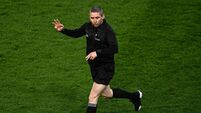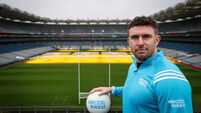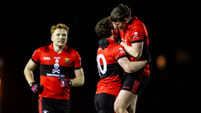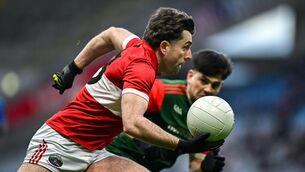Griffin: We can grind it out
In fact, the Dublin vice-captain is more likely to be found with an iPad in his hands on Sunday as he assists Ray Boyne and the rest of the Dublin team.
Better to be doing something than moping around and dwelling on missing out on an All-Ireland final appearance he has been seeking since his inter-county debut in 2004.














